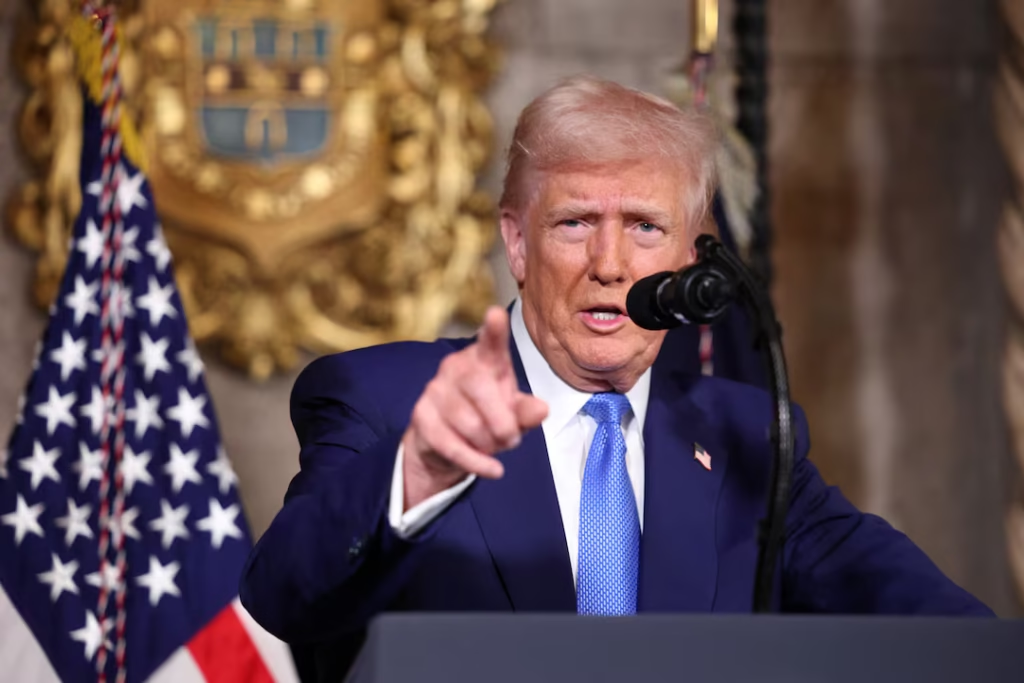President Donald Trump announced Tuesday his intent to impose a 25% tariff on imported automobiles, pharmaceuticals, and semiconductor chips, escalating trade tensions with major U.S. partners. The proposed duties mark the latest effort in his administration’s push to reshape global trade policies.

Trump stated that tariffs on automobiles could be implemented as early as April 2, following the completion of reports from his cabinet outlining options for adjusting import duties. The president has consistently criticized what he views as the unfair treatment of U.S. auto exports, particularly in European markets.
The European Union currently imposes a 10% duty on vehicle imports, four times higher than the 2.5% U.S. tariff on passenger cars. However, the U.S. levies a 25% tariff on imported pickup trucks from countries other than Mexico and Canada, making these vehicles highly profitable for American automakers.
EU trade chief Maros Sefcovic is scheduled to meet with U.S. officials, including Commerce Secretary Howard Lutnick, U.S. Trade Representative nominee Jamieson Greer, and National Economic Council Director Kevin Hassett, to discuss the administration’s tariff plans. Trump claimed the EU has signaled willingness to lower tariffs on U.S. vehicles to match American rates, though European lawmakers have denied making such commitments.
During a press briefing at his Mar-a-Lago estate in Florida, Trump confirmed that pharmaceuticals and semiconductor chips would also be subject to a 25% or higher tariff. He suggested these duties could increase over the next year to encourage companies to relocate production to the U.S.
While he did not specify a timeline for implementing the tariffs, he stated that manufacturers would be given time to establish domestic operations before the duties take effect.
Since taking office, Trump has implemented a series of aggressive trade measures. His administration recently imposed a 10% tariff on all imports from China, citing the country’s failure to curb fentanyl trafficking. Additionally, he set a March 12 start date for 25% tariffs on imported steel and aluminum, eliminating exemptions previously granted to Canada, Mexico, and the European Union.
Last week, Trump directed his economic team to formulate a strategy for imposing reciprocal tariffs, ensuring that U.S. duties match those of trading partners on a product-by-product basis.
The proposed auto tariffs signal a renewed effort to overhaul trade policies impacting the global automotive industry. A similar proposal emerged during Trump’s first term when the Commerce Department concluded in a 2018 national security investigation that auto imports weakened the U.S. industrial base. Although Trump had threatened a 25% tariff at the time, no action was taken, and the authority from the investigation expired.
Analysts speculate that findings from the 2018 probe could be revisited or updated to justify the new tariff push.


